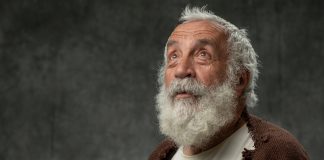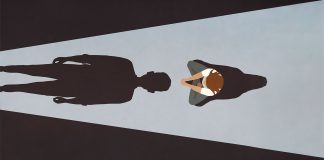The shadow of the throne
In the heart of the most powerful man in Judea, a greater fear than any other was born: the fear of losing control. Herod's story could be our story.
The end of the world—and humility
“They pour out arrogant words; all the evildoers are full of boasting” (Psalm 94:4).
Detoxification through the body’s own resources
In antiquity, rituals were used to purify both spirit and body. With advances in technology and the refinement of marketing techniques in recent decades, the idea of purification has been revived in the form of “detoxification,” a concept that capitalizes on people’s fears related to pollution, unhealthy diets, and sedentary lifestyles.
Zechariah: From disbelief to praise
When prayers go unanswered, faith can turn to disbelief and hope to scepticism. On the other hand, God can intervene at unexpected moments, providing unexpected answers, as happened in Zechariah's life.
The Mayflower odyssey
From the ship’s hold, 102 passengers poured eagerly onto the deck, pale after 65 days of confinement, longing to see the sky and dry land again. Their arrival in the New World might have gone entirely unnoticed had these immigrants not marked history with a first act that would come to define modern democracy.
Gluten under the microscope
Only people with specific gluten-related conditions—such as celiac disease, wheat allergy, or non-celiac gluten sensitivity—experience adverse reactions to gluten consumption.
Do you know your child’s love language?
In 1997, Dr Gary Chapman released the book "The 5 Love Languages of Children" as a follow-up to his bestseller, "The Five Love Languages."
Temperance: the lost virtue
Temperance was once upheld by philosophers, saints and stoics. In a world dominated by indulgence, its call to balance feels more relevant than ever.
The big impact of small acts of kindness
An unexpected act of kindness can change a day—whether you are on the receiving end or the one who initiates it. And that change can echo far beyond a single day, because when measured by their effects, acts of kindness are never truly small, despite the language we use to describe them.
The fresh air advantage
It’s something many of us overlook, yet the research is showing that getting outside is better for us than we might imagine.
Autumn also has its spring
Sometimes, life is a succession of questions that God seems to ignore—until, at the right time, His silence provides an answer that is better than any answer in the world.
My journey to Bethlehem
They say that "all roads lead to Rome". This famous saying originated in ancient times with the extensive network of roads built by the Romans to facilitate communication and travel throughout their empire.
Becoming the father of the Son of God
In the history of salvation, few people have received a more unsettling calling than Joseph of Nazareth. After overcoming his initial hesitation, he made a series of decisions born of obedience. He remains a model of mature faith and authentic manhood.
Mary’s journey: from inner turmoil to unshakeable trust
Mary was an ordinary person, just like us. The Gospel does not suggest that she had any particular merit, yet her obedience played a pivotal role in a story that would change the world.
Actors in a divine plan
At the appointed time in the plan of salvation, Christ was sent to us: "When the set time had fully come, God sent His Son, born of a woman, born under the law..." (Galatians 4:4).
Heaven won’t be boring. Here’s why.
Forget floating on clouds—discover the thrilling, purposeful eternity God has planned for you.
During the commercial breaks, happiness walks barefoot
"Once upon a time there was a man who lived in Scarcity. After many adventures and a long journey through Economic Science, he met the Affluent Society. They married and had lots of needs." (Jean Baudrillard)
Time famine, a modern affliction
If you asked someone you know how they were doing, how likely would they be to say that they were busy, tired, or stressed? For modern humans, a lack of time seems to be their Achilles heel, preventing them from enjoying the advantages of increased life expectancy, technological development, and the wide range of choices that material well-being affords.
Dangerous closeness: How to recognise and prevent abuse
Sexual abuse follows a predictable pattern, but unfortunately this pattern is not widely known. It is essential to recognise its early signs and profound effects for both protection and healing.
The second coming of Jesus | The third millennium of waiting
Although often associated with horror-movie scenarios, in the Bible the end of the world is linked to the Second Coming of Christ—a glorious event that will mark the start of a new era. However, two millennia have passed since the birth and crucifixion of Christ. The so-called delay of Jesus's return is a source of irony for atheists and causes turmoil in the...




































